The purpose-built student accommodation (PBSA) sector has faced its challenges, but admission levels this year show that more 18-year-olds than ever are looking to go to university.
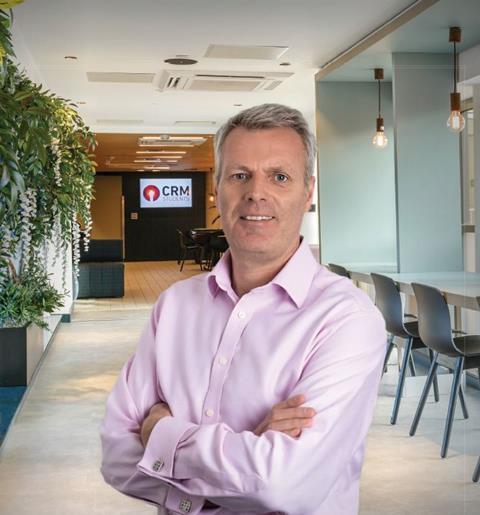
Property Week recently sat down with Richard Skeels, chief executive officer of CRM Students, to get his take on the state of the market, the cost-of-living crisis and the resilience of the sector.
Skeels acknowledges that the pandemic and the years following have been difficult for the market, but adds that there has been no let-up in demand from young people for the university experience – quite the opposite, in fact. “We currently have more 18- to 21-year-olds as a population than for some time so demand has increased,” he says.
“Obviously it’s been a tough couple of years for everybody, but the student market has been resilient. Young people are asking: ‘Well, what are my options as an 18-year-old? Is it an apprenticeship? Is it a job? Is it university?” We’re seeing a lot of those young people deciding they want to go to university for the next three years.”
Obviously it’s been a tough couple of years for everybody, but the student market has been resilient
Richard Skeels
Crucially for the PBSA market, that includes overseas students once again choosing to come to the UK, which is encouraging. “Speaking to other operators, it’s been a very good year and we are back to pre-pandemic levels,” says Skeels. “Asia is still a good market and both the Chinese and Indian markets are strong – they are the two biggest cohorts internationally.”
Demand varies from students wanting accommodation with multiple facilities to others looking for more value-for-money options. The UK market is now mature, he says, meaning there are options to suit most budgets in most locations.
International students often want more expensive rooms while the domestic market can be more price sensitive – it is about providing a choice “and then they can make their own decisions from there”, he explains.
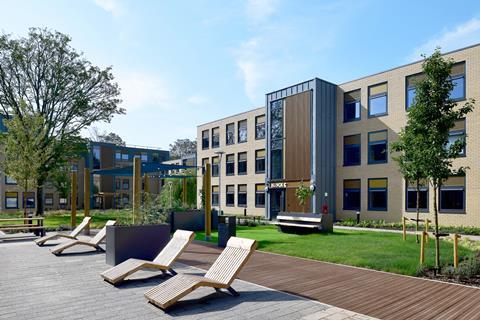
However, according to Skeels, the UK being a mature market means there are also challenges. “One of the challenges on the horizon for student accommodation across the sector is first-generation stock that is not meeting the environmental, social and governance [ESG] agenda,” he says. “The issue of how first-generation stock can be fit for purpose going forward is a challenge for everyone in the sector.”
He believes collaboration will be essential in the future: “As we look ahead, there is an even greater need for the universities and PBSA providers to have a conversation. There is an interesting piece in terms of stock and what’s being offered.”
Earlier conversations
The record number of students seeking to secure accommodation is also an issue and one that requires providers and universities to have better conversations earlier in the academic year, according to Skeels. “Pre-pandemic, there would always be a university that was going through clearing and would ring you up and say: ‘We need extra rooms because we’ve got extra students this year. What have you got?
“There would always be a PBSA provider, sometimes us, sometimes others, that said: ‘Sure, I’ve got some spare capacity, and we can fit you in.’”
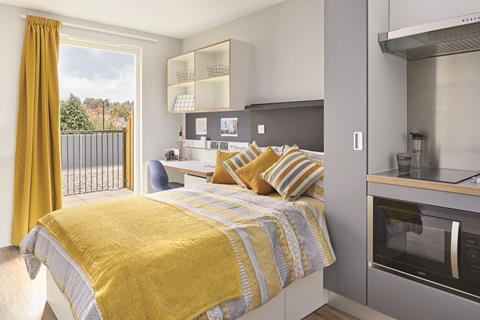
But capacity is becoming an issue and Skeels says CRM has experienced this first hand: “I took a phone call through clearing with one university in London saying it was looking for 200 rooms, but we were already full. Conversations need to happen earlier to make sure we don’t have repeats of universities not having rooms. If we can get those conversations right, I hope we can get a good solution for all involved.”
However, recent headlines show students either unable to find accommodation in their chosen city, having to travel long distances and live away from their peers or having to queue up overnight outside estate agents to secure accommodation for the next academic year. It isn’t just about geography and demand, however – there is the element of affordability of students, a topic that is in the spotlight now more than ever considering the recent cost-of-living increase.
All-inclusive offer
Students in housing in multiple occupation (HMO) are responsible for sorting out their own utilities, which can be a challenge for first-years living away from home for the first time, and particularly at a time of soaring energy costs. Historically, the PBSA sector may have appeared more expensive, but in the present climate its typical all-inclusive offer provides a certainty when it comes to costs that isn’t available elsewhere.
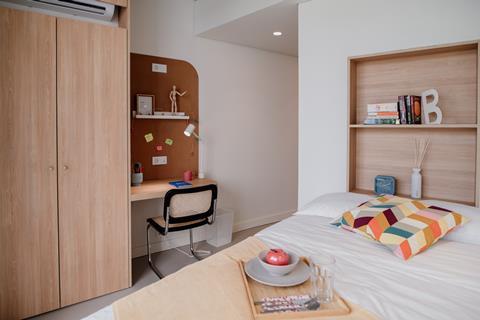
“Pre-pandemic, around January time we’d normally do a marketing campaign that would promote the benefits of PBSA over an HMO and that was partly about inclusive bills, but was probably more about high-speed wifi, communal facilities and so on,” says Skeels. “I wouldn’t be surprised if this year when we run that promotion it will be more about all-inclusive bills. There’s a very big opportunity for PBSA in terms of that all-inclusive price.”
What’s more, Skeels points out that because of its scale, CRM Students can negotiate better prices with utilities firms on behalf of its residents, something that most HMO landlords are unable to do. “As an operator of a number of sites, we have some buying power,” he explains. “We work with suppliers, and we can negotiate a good price. The PBSA operators have had some buying power and have got some stability, but it’s a very big question now as to what will happen with utilities going forward. There are clearly some challenges over costs on the horizon. It’s about trying to mitigate those challenges when we can.”
Despite being able to negotiate a better price, cost of living remains at the forefront of Skeels’ mind. “Everyone is talking about or thinking about their costs and how it affects them,” he explains, noting that the PBSA sector is not facing this in isolation – key suppliers such as maintenance staff, cleaners and contractors are also putting their costs up. He adds: “If suppliers are putting up their costs, whether that’s security staff, maintenance staff, cleaners or lift contractors, our clients are asking how we can control those costs. There’s an ongoing conversation and it is usually a fair conversation.”
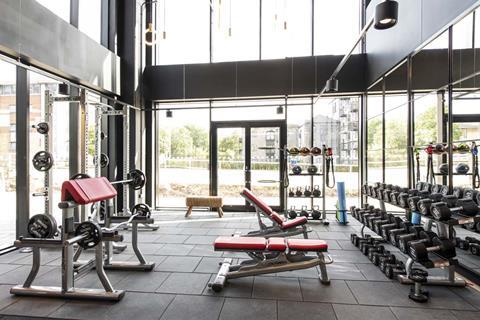
The aim of these conversations with clients is to negotiate a rent that offsets the cost increases, while also maintaining both an affordable price for students and generating sufficient income for clients.
Despite short-term concerns, Skeels is confident the PBSA sector’s trajectory will continue to be upwards. Many HMO landlords are selling up due to forecast decreases in property values and a less favourable tax environment, leaving a substantial gap in the market. In addition, more students now expect a better-quality product.
“The benchmark has been raised,” he says. “It’s now about getting good stock back into the marketplace that is fit for purpose and the future.”
The accommodation experience is ever-changing for the students of today, with the PBSA sector pushing boundaries in terms of product quality and offerings that weren’t included in the past.
Despite challenges previously faced over the pandemic, the market has bounced back with an alacrity not seen in the past couple of years. Skeels concludes that PBSA remains a strong sector and predicts that despite its increasing maturity, has significant room for growth – much like the students it provides for.































No comments yet